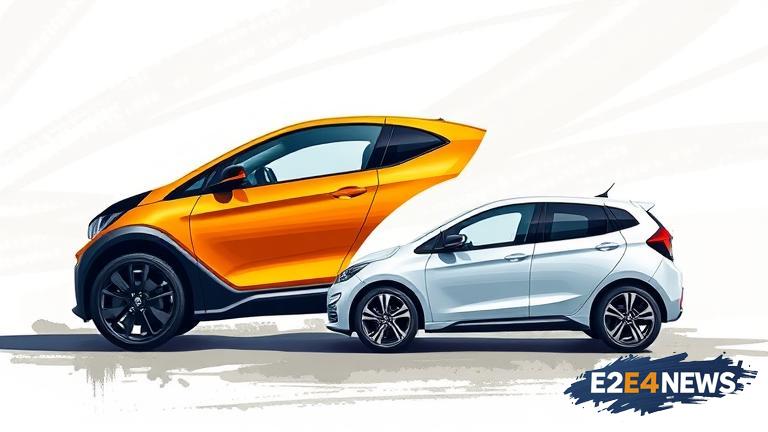The Indian government has announced a comprehensive plan to promote the adoption of electric vehicles (EVs) in the country. The plan includes a range of incentives and initiatives aimed at encouraging the use of EVs, reducing greenhouse gas emissions, and improving air quality. According to reports, the government plans to offer subsidies to EV manufacturers, as well as to consumers who purchase EVs. The subsidies are expected to be in the form of tax exemptions, reduced registration fees, and other benefits. Additionally, the government plans to invest in the development of EV charging infrastructure, including the installation of charging stations along highways and in urban areas. The plan also includes measures to promote the use of EVs in public transportation, such as buses and taxis. The government has set a target of having at least 30% of new vehicle sales be electric by 2030. To achieve this goal, the government plans to work with state governments, industry stakeholders, and other organizations to create a supportive ecosystem for EVs. The plan also includes measures to promote research and development in the field of EVs, including the establishment of specialized research centers and the provision of funding for startups and entrepreneurs. Furthermore, the government plans to launch a public awareness campaign to educate consumers about the benefits of EVs and to address any misconceptions or concerns they may have. The campaign will include advertising, social media promotions, and other outreach efforts. The government has also announced plans to establish a network of EV testing and certification centers, to ensure that EVs meet safety and performance standards. The plan has been welcomed by industry stakeholders, who see it as a major step forward in promoting the adoption of EVs in India. However, some experts have cautioned that the plan will require significant investment and coordination to be successful. They have also emphasized the need for a comprehensive and integrated approach to promoting EVs, including measures to address issues such as range anxiety and charging infrastructure. Despite these challenges, the government remains committed to its goal of promoting EVs and reducing the country’s dependence on fossil fuels. The plan is seen as a key part of India’s efforts to reduce its carbon footprint and to meet its commitments under the Paris Agreement. In addition to the environmental benefits, the plan is also expected to have economic benefits, including the creation of new jobs and the stimulation of economic growth. The government has estimated that the plan could create up to 10 million new jobs in the EV sector by 2030. The plan has also been welcomed by consumers, who see EVs as a more affordable and environmentally friendly alternative to traditional vehicles. However, some consumers have expressed concerns about the limited range and charging infrastructure of EVs, and have called for more investment in these areas. Overall, the plan is seen as a major step forward in promoting the adoption of EVs in India, and is expected to have significant environmental, economic, and social benefits. The government’s commitment to promoting EVs is also seen as a key part of its efforts to reduce the country’s dependence on fossil fuels and to meet its commitments under the Paris Agreement. The plan is expected to be implemented in phases, with the first phase focusing on the development of EV charging infrastructure and the promotion of EVs in public transportation. The second phase will focus on the promotion of EVs in private transportation, including the provision of subsidies and other incentives to consumers. The plan will be monitored and evaluated regularly, to ensure that it is meeting its goals and to identify areas for improvement. The government has also announced plans to establish a national EV policy, which will provide a framework for the development of the EV sector and will outline the government’s vision and goals for the sector. The policy will be developed in consultation with industry stakeholders, state governments, and other organizations, and will be reviewed and updated regularly. In conclusion, the Indian government’s plan to promote the adoption of EVs is a major step forward in reducing the country’s dependence on fossil fuels and promoting sustainable transportation. The plan has the potential to have significant environmental, economic, and social benefits, and is expected to create new jobs and stimulate economic growth. However, the plan will require significant investment and coordination to be successful, and will need to be implemented in a phased and integrated manner.
